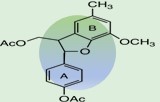Human Chorionic Gonadotropin (hCG), a glycoprotein hormone produced primarily by the placenta during pregnancy, is a critical area of study for researchers focused on reproductive endocrinology, oncology, and developmental biology. Structurally similar to luteinizing hormone (LH), follicle-stimulating hormone (FSH), and thyroid-stimulating hormone (TSH), hCG plays a vital role in maintaining pregnancy, promoting angiogenesis, and potentially influencing fetal development.
Key Functions and Mechanisms:
-
Maintenance of Pregnancy: hCG supports the corpus luteum during early pregnancy, stimulating progesterone production to maintain the uterine lining and prevent menstruation.
- Angiogenesis and Vascular Genesis: hCG promotes angiogenesis and vascular genesis in the uterine vasculature during pregnancy, crucial for placental development. It interacts with TGFβRII, contributing to angiogenesis necessary for placental development.
- Immunomodulation: hCG modulates maternal innate and adaptive immune responses, allowing acceptance of fetal antigens.
- Fetal Development: hCG/LH receptors found in fetal organs suggest a role in organ growth and differentiation in the fetus.
Research Applications and Clinical Significance:
- Pregnancy Monitoring: hCG levels in serum or urine are essential for diagnosing and monitoring pregnancy and pregnancy-related disorders.
- Gynecological Cancers: hCG expression is observed in several malignancies, including gynecological cancers. It is used as a marker in postmolar monitoring due to the correlation between hCG levels and trophoblastic tumor burden.
- Fertility Treatment: hCG is used to induce ovulation in assisted reproductive technologies.
- Fetal Fate: hCG determines fetal fate by regulating maternal innate and adaptive immune responses, allowing acceptance of the foreign fetal antigens.


